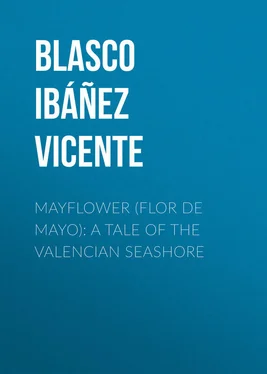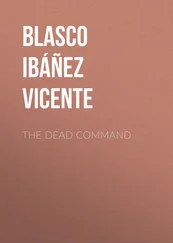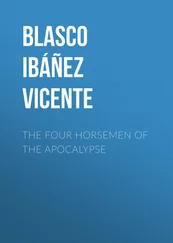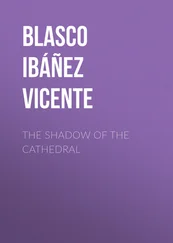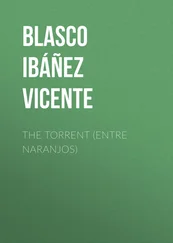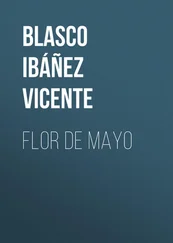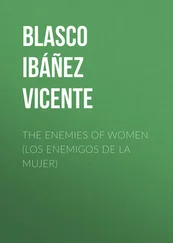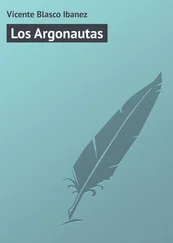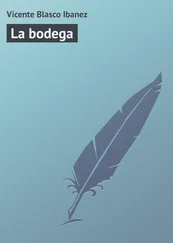Vicente Blasco Ibáñez - Mayflower (Flor de mayo) - A Tale of the Valencian Seashore
Здесь есть возможность читать онлайн «Vicente Blasco Ibáñez - Mayflower (Flor de mayo) - A Tale of the Valencian Seashore» — ознакомительный отрывок электронной книги совершенно бесплатно, а после прочтения отрывка купить полную версию. В некоторых случаях можно слушать аудио, скачать через торрент в формате fb2 и присутствует краткое содержание. Жанр: foreign_antique, foreign_prose, на английском языке. Описание произведения, (предисловие) а так же отзывы посетителей доступны на портале библиотеки ЛибКат.
- Название:Mayflower (Flor de mayo): A Tale of the Valencian Seashore
- Автор:
- Жанр:
- Год:неизвестен
- ISBN:нет данных
- Рейтинг книги:3 / 5. Голосов: 1
-
Избранное:Добавить в избранное
- Отзывы:
-
Ваша оценка:
- 60
- 1
- 2
- 3
- 4
- 5
Mayflower (Flor de mayo): A Tale of the Valencian Seashore: краткое содержание, описание и аннотация
Предлагаем к чтению аннотацию, описание, краткое содержание или предисловие (зависит от того, что написал сам автор книги «Mayflower (Flor de mayo): A Tale of the Valencian Seashore»). Если вы не нашли необходимую информацию о книге — напишите в комментариях, мы постараемся отыскать её.
Mayflower (Flor de mayo): A Tale of the Valencian Seashore — читать онлайн ознакомительный отрывок
Ниже представлен текст книги, разбитый по страницам. Система сохранения места последней прочитанной страницы, позволяет с удобством читать онлайн бесплатно книгу «Mayflower (Flor de mayo): A Tale of the Valencian Seashore», без необходимости каждый раз заново искать на чём Вы остановились. Поставьте закладку, и сможете в любой момент перейти на страницу, на которой закончили чтение.
Интервал:
Закладка:
The craft was righted and grounded on the sand. The masts were off even with the deck. The hold was full of water. When the fishermen went down inside to bail her out with pails, their bare feet, entangled in the mess of line and baskets and cordage, stepped finally on something soft. After a first instinctive cry of horrified revulsion, the men reached down under water with their hands and drew out – a corpse.
Tio Pascualo was hardly recognizable. His body was swollen, green, the belly inflated to the point of bursting. The decaying flesh was gnawed away in places by hungry little fishes, some of which, loath to let go their prey, were still clinging to it by their teeth, wriggling their tails and giving an appearance of disgusting life to the horrible mass. The bold sailor's fate was clear. He had been hurled through the hatchway by a lunge of the deck before the boat had been lost. Inside there he had lain with his skull crushed. That boat – the dream of his life, the achievement of thirty years of penny-saving – had proved to be his coffin!
Tio Pascualo's widow, in her hysterical weeping, shrank from the repugnant body. The women of the Cabañal raised their voices in weird lamentation and trooped in company behind the wooden box that was carried at once to the cemetery. For a week tio Pascualo was the subject of every conversation. Then people forgot about him, save that the appearance of his mourning widow, with one child in her arms and another at her side, chanced to remind them of his grewsome end.
Tona, indeed, had lost not her husband only. Dire poverty was upon her, not the poverty that is hard but tolerable, but the poverty that is terrifying even to the poor, the want of the homeless and the bread-less, the want that holds out a mendicant hand from the street corner to beg a penny and give thanks for a crust of mildewed bread.
Help came readily while her misfortune was fresh in the minds of the villagers. A subscription was taken up among the fisherfolk, and on the proceeds, with other gifts that came in, she was able to get along for three or four months. Then people forgot. Tona was no longer the widow of a man lost at sea. She was a pauper ever on hand with the wail for alms. Many doors were at last shut in her face, and old friends of her girlhood, who had always welcomed her with a smile, now looked the other way when she went by.
But Tona was not the woman to be crushed by general ostracism. Eah! Enough of this bawling! We've got to get out of the dumps! She was a woman with two arms like any other, and two brats that could eat and eat and eat!
She had nothing left in the world but the wreck of her husband's boat, in which he had died. It lay rotting out there on the beach, high and dry, now soaked by the rains, now oozing tar under the flaming sun, the mosquitos breeding in the muck inside.
Tona suddenly had an idea. That boat might be good for something. It had killed the father of those tots of hers. Why should it not help to feed them? Tio Mariano, a tight-fisted bachelor, first cousin to the late Pascualo, and supposed to be quite well off, had taken a liking to the widow's children; and however much it pained him, he went down into his pocket and gave her the money to make her start.
In one side of the boat a hole was sawed to make a door and a small counter. Against the wall inside some barrels of wine, gin and brandy were ranged in line. The deck was taken off and replaced with a roof of tarred boards, to give head-room, at least, in the dingy hovel. At the bow and at the stern two portholes were cut, and two partitions were set up with the boards remaining – one "stateroom" for the widow, the other for the boys. A shelter with a thatched roof was raised in front of the door; under it a couple of rickety tables, and as many as half a dozen bamboo tabourets. The whole outfit made quite a show. The hulk of death became a beach café within easy reach of the casa del bòus , the barn where the oxen for beaching and launching the boats were kept, and at the very place where the fish was brought ashore and where some one was always around.
The women folks of the Cabañal began to rub their eyes. That Tona was the Devil himself! See what an eye she had for business! Her gin and brandy went by the barrelful. The men who used to go to the taverns in town now got their drinks right there of her. They were always playing truque y flor on the shaky tables under the shelter while waiting for the boats to put to sea, brightening up the games with glass after glass of caña , which Tona averred was genuine imported Cuban rum.
Tio Pascualo's stranded craft went sailing, wind astern, on a new voyage toward prosperity. Out there on the rocking sea with the old skipper's seines, the boat had never earned so much as now under the widow's charge, though its seams were open and its timbers were rotting away. Evidence of profit could have been found in the successive transformations the old hulk kept undergoing. First curtains went up on the stateroom windows, and if you looked inside, you saw new coverlets of down, and white sheets. A coffee percolator began to shine like polished gold on the counter. The shelter outside the door grew longer and longer, with more tables and better ones. A dozen hens or more began to cluck about over the white sand, bossed by a wicked rooster with a tenor voice who was more than a match for any stray dog that came along looking for trouble. From a pen nearby echoed the grunts of a hog too fat to breathe without disturbing the neighborhood. And in front of the counter, outside the hull, were two stoves with rice and fish sputtering fragrantly in oil in their respective frying-pans. A going concern, no doubt of that! Not a question of getting rich, you understand, but a bite to eat for the boys! And Tona would smile and rub her hands gloatingly. Not a cent did she owe in the world. The ceiling of the boat was festooned with dry morcillas and shiny sobreasadas – her favorite sausages; and there were strips of smoked tunny, and a ham or two sprinkled with red pepper. The barrels were full of drink. Along the shelves stretched an array of bottles with liqueurs of every color. And the pots and pans hanging on the walls could be set sizzling in an instant with all kinds of good nourishing victuals. Just think of it! A widow starving a short time since, and now already on Easy Street! Say all you want – but God looks after decent people!
With plenty to eat and nothing to worry about, Tona seemed to grow young again. Inside her boat there she took on a glowing well-fed buxomness, and her skin, protected from the sun and brine, lost that harsh baked bronze of the women who worked along shore. When serving at the counter her ample breast sported inevitably one of an endless assortment of colored handkerchiefs, tomate y huevo , complicated arabesques of tomato red and egg yellow worked into thick well woven silk.
She could even afford purely decorative luxuries. Above the wine casks at the back of the "shop" the whitewashed timbers screamed aloud with cheap high colored chromos that reduced Tona's neck-wear to silence, quite. The fishermen drinking outside under the shelter would look up over the counter and feast their eyes on "The Lion Hunt," "The Death of the Good Man and the Sinner," "The Ladder of Life," not to mention a half dozen miracle-workers with Saint Anthony in the place of honor; and a cartoon showing the lean merchant who trusts, and the fat one who sells for cash, with the customary legend: "If you want credit, come back to-morrow!"
Tona could be quite properly satisfied at the relative comfort in which her young ones were growing up. Business was getting better and better, and an old stocking which she kept hidden between the foot board of her bunk and the big mattress there, was gradually filling with the silver douros she had saved.
Читать дальшеИнтервал:
Закладка:
Похожие книги на «Mayflower (Flor de mayo): A Tale of the Valencian Seashore»
Представляем Вашему вниманию похожие книги на «Mayflower (Flor de mayo): A Tale of the Valencian Seashore» списком для выбора. Мы отобрали схожую по названию и смыслу литературу в надежде предоставить читателям больше вариантов отыскать новые, интересные, ещё непрочитанные произведения.
Обсуждение, отзывы о книге «Mayflower (Flor de mayo): A Tale of the Valencian Seashore» и просто собственные мнения читателей. Оставьте ваши комментарии, напишите, что Вы думаете о произведении, его смысле или главных героях. Укажите что конкретно понравилось, а что нет, и почему Вы так считаете.
